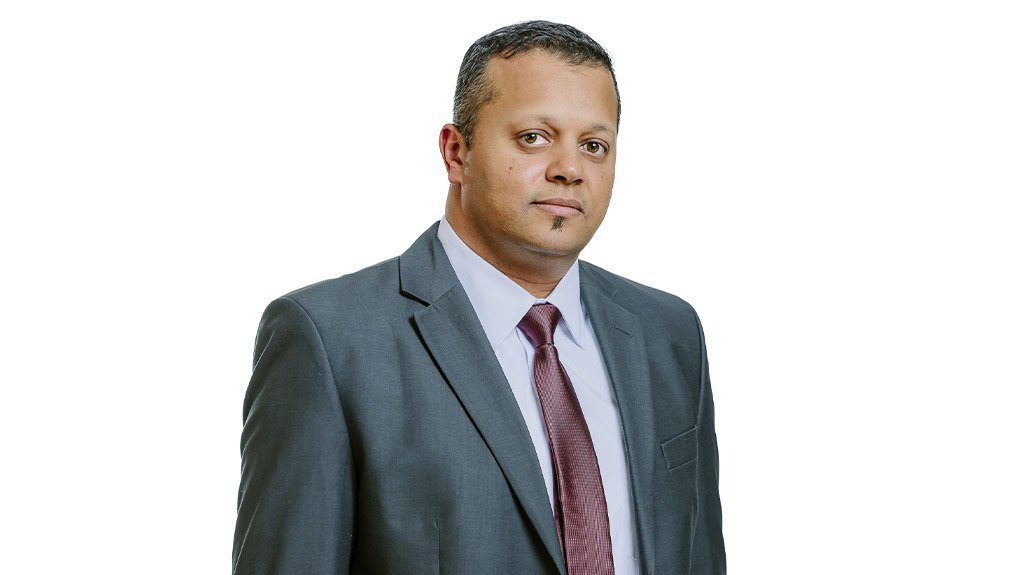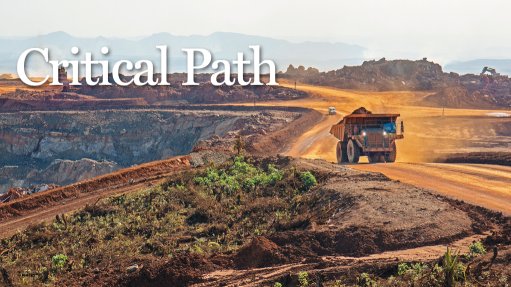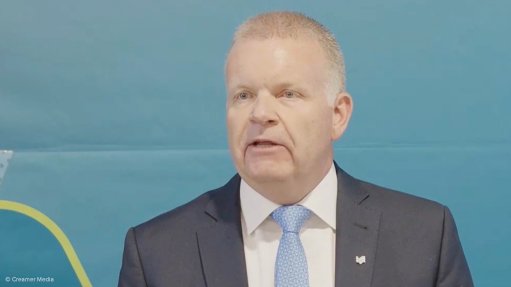Experience, ESG, innovation drives region’s mining
Mining has been an economic mainstay for Southern African economies in recent years, the task is now to build on the momentum that has been created, according to Omnia group company BME.
The region’s mining activity has shown positive signs as the world economy has rebounded, according to BME Managing Director Ralf Hennecke. Sales in minerals such as copper, cobalt, gold, platinum group metals, iron ore and manganese have all benefited countries like South Africa and Zambia. For Botswana, Namibia and Angola, there are also better prospects for commodities such as uranium.
“Although the recent Fraser Institute annual survey ranked many Southern African countries poorly in terms of their mining policy, these industries are showing considerable resilience,” said Hennecke. “The region is well endowed with mineral deposits and with the skills and experience to exploit them.”
Local knowledge
He highlighted that the region’s real value lay in the institutionalised knowledge of the companies that operate here, and their understanding of how to respond constructively to prevailing conditions and emerging trends. Among the recent shifts in policy which will strengthen this foundation is a greater focus on local business participation.
“In our decades of involvement in Southern Africa Development Community (SADC) countries, we have a strong heritage which we are sharing with partners across the region,” he said. “Our business networks allow us to meet localisation imperatives and to continue transferring skills.”
Forward through ESG
He noted that BME’s efforts on this front also support the shared-value and sustainability commitments of responsible mining companies, which have embraced the principles of empowerment now being legislated in many countries. Much of this commitment is expressed in the industry’s well-accepted environmental, social and governance (ESG) policies.
“Our in-country partnerships also imply investment in local infrastructure and skills transfer, to build capacity in local supply chains,” he said. “Such capacity is vital for mining companies, especially in fields such as blasting and explosives – where reliable supply is crucial for mining to remain competitive.”
A company like BME, for instance – in aligning with Omnia group policies – prioritises openness, integrity and accountability, he noted. The group’s ESG mandate embraces economic, social and environmental relationships through an integrated, sustainable approach that encompasses all stakeholders – including shareholders, customers, employees, suppliers, governments and the communities in which it operates.
Driven by innovation
Mining competitiveness in Southern Africa is also being built on ongoing technological innovation – much of it locally developed. The inexorable progress towards smart mining operations is being accelerated by the application of digital technology. In the blasting sector, said Nishen Hariparsad, BME GM for technology, this is well demonstrated through the use of blast planning software, electronic detonators and other digital tools.
The motivation driving this trend includes not only safety, efficiency and productivity, but also the reduction of carbon emissions. Mining companies in the region are, like their global counterparts, acutely aware of environmental regulations and standards, as well as investors’ insistence on best practice.
“To meet rising ESG and sustainability standards, mines are constantly fine-tuning the quality of their blasting practice, and improving the productive impact of their blasts,” he said. “For example, better fragmentation of rock – achieved through quality blasting – optimises the energy used in downstream functions.”
Where power consumption can be saved in energy-intensive activities like loading, hauling, crushing and grinding, mines can cut costs while reducing their carbon footprint. For BME, its world-class emulsion explosives, enhanced by its AXXIS electronic initiation system and Blast Alliance suite of digital solutions, help mines to make this possible.
Learning from data
The digital learning curve is strongly driven by data generation, gathering and analysis. Mines are leveraging real-time information from equipment and processes all over the site for better and quicker decision-making. Hariparsad highlights that for this data be intelligible and useful, it must also be integrated into the mine’s chosen platforms.
“Suppliers of services, equipment and materials in Southern Africa are fast developing vital expertise in the digital space,” he said. “This is enabling mines to track, measure and assess the performance of machines and services – ideally through their own dashboard or interface.”
Data security is therefore growing in importance; mines must be confident that all systems are protected from outside interference by malicious sources, and at the same time complying with evolving local regulations governing data protection in each country.
“The days where data management was considered a niche field for technology specialists are over,” he said. “Service providers to mines in the region have increasingly ensured that they develop in-house digital expertise that adds increasing value to whichever suite of products or services the company delivers.”
Project pipeline
Where Hennecke does have a concern is in the pace of new project development in the region. With potential commodity shortages looming – especially in battery minerals like cobalt, copper, nickel and platinum group metals – there are simply too few greenfields projects in the pipeline to grasp the demand opportunities, he argued.
“With new mines and large expansions taking up to a decade to progress from planning to production, SADC countries could lose out if they are not more proactive in exploration and development,” he said. “Greenfields projects in particular are scarce, and they could add valuably to meeting the future demand-supply gap.”
He acknowledged that there might be some uncertainty about which minerals would be most in demand in 10 or 20 years’ time, but noted that the mining sector would still be expected to respond quickly. In this context, mineral-rich countries like the Democratic Republic of Congo and Zambia were not currently seeing the necessary levels of investment.
Mining’s attractiveness
While mining countries in the region had their own decisions to make about how to attract investment into their mineral sectors, it was encouraging to see the constructive steps being taken by the industry as a whole to improve its position as an investment target. While certain stereotypes about mining linger in the public perception, the sector has embraced complex ESG challenges proactively, he argued.
“The industry is also expecting its service providers and suppliers to align with these priorities,” he said. “This has laid the groundwork for a more constructive relationship with host governments and communities going forward.”
For instance, it has taken seriously the impacts of climate change, and is engaging more effectively with local communities and other stakeholders. In many respects, mining is pioneering new levels of best practice, using the technological resources at its disposal.
“Southern Africa’s opportunity is to grow its mining sector along this positive trajectory, allowing mining to release economic value and contribute even more to broader economic growth,” said Hennecke. “By sharing value up and down its value chain within a sustainable operating model, mining holds great potential for stimulating secondary industries and inclusive growth.”
Article Enquiry
Email Article
Save Article
Feedback
To advertise email advertising@creamermedia.co.za or click here
Announcements
What's On
Subscribe to improve your user experience...
Option 1 (equivalent of R125 a month):
Receive a weekly copy of Creamer Media's Engineering News & Mining Weekly magazine
(print copy for those in South Africa and e-magazine for those outside of South Africa)
Receive daily email newsletters
Access to full search results
Access archive of magazine back copies
Access to Projects in Progress
Access to ONE Research Report of your choice in PDF format
Option 2 (equivalent of R375 a month):
All benefits from Option 1
PLUS
Access to Creamer Media's Research Channel Africa for ALL Research Reports, in PDF format, on various industrial and mining sectors
including Electricity; Water; Energy Transition; Hydrogen; Roads, Rail and Ports; Coal; Gold; Platinum; Battery Metals; etc.
Already a subscriber?
Forgotten your password?
Receive weekly copy of Creamer Media's Engineering News & Mining Weekly magazine (print copy for those in South Africa and e-magazine for those outside of South Africa)
➕
Recieve daily email newsletters
➕
Access to full search results
➕
Access archive of magazine back copies
➕
Access to Projects in Progress
➕
Access to ONE Research Report of your choice in PDF format
RESEARCH CHANNEL AFRICA
R4500 (equivalent of R375 a month)
SUBSCRIBEAll benefits from Option 1
➕
Access to Creamer Media's Research Channel Africa for ALL Research Reports on various industrial and mining sectors, in PDF format, including on:
Electricity
➕
Water
➕
Energy Transition
➕
Hydrogen
➕
Roads, Rail and Ports
➕
Coal
➕
Gold
➕
Platinum
➕
Battery Metals
➕
etc.
Receive all benefits from Option 1 or Option 2 delivered to numerous people at your company
➕
Multiple User names and Passwords for simultaneous log-ins
➕
Intranet integration access to all in your organisation























